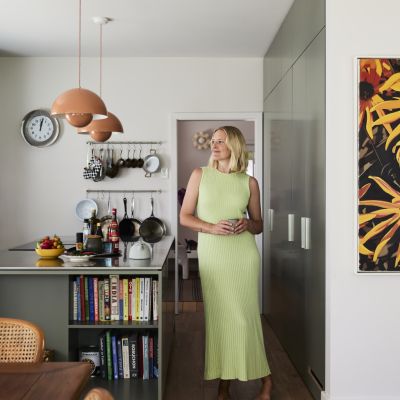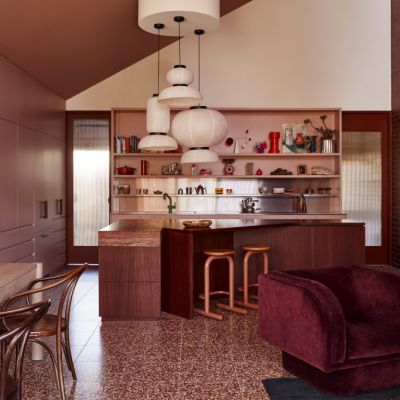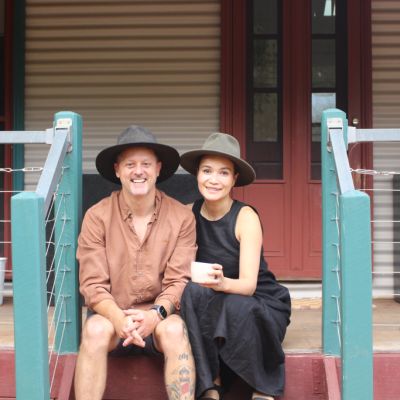How this couple used government grants and incentives to build their Reservoir home
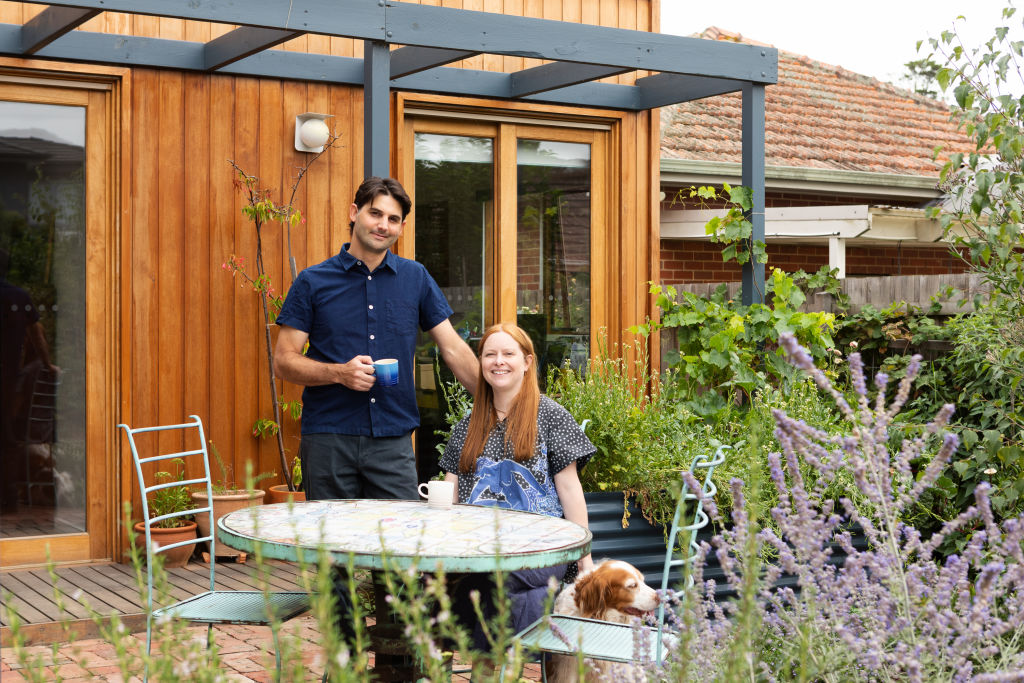
It is hard to imagine this much-loved home in Melbourne’s Reservoir was a vacant block of land not so long ago.
The home oozes a house-proud, lived-in feeling, the garden is well-established, and owners Jess Barry and Nathan Burgess already feel like long-time residents, always ready for a yarn with neighbours.
Building a home from scratch wasn’t their original plan. The couple had been renting for over a decade and were in pursuit of home ownership. The plan was to buy an existing home within their budget, which meant looking further afield from where they’d been renting.
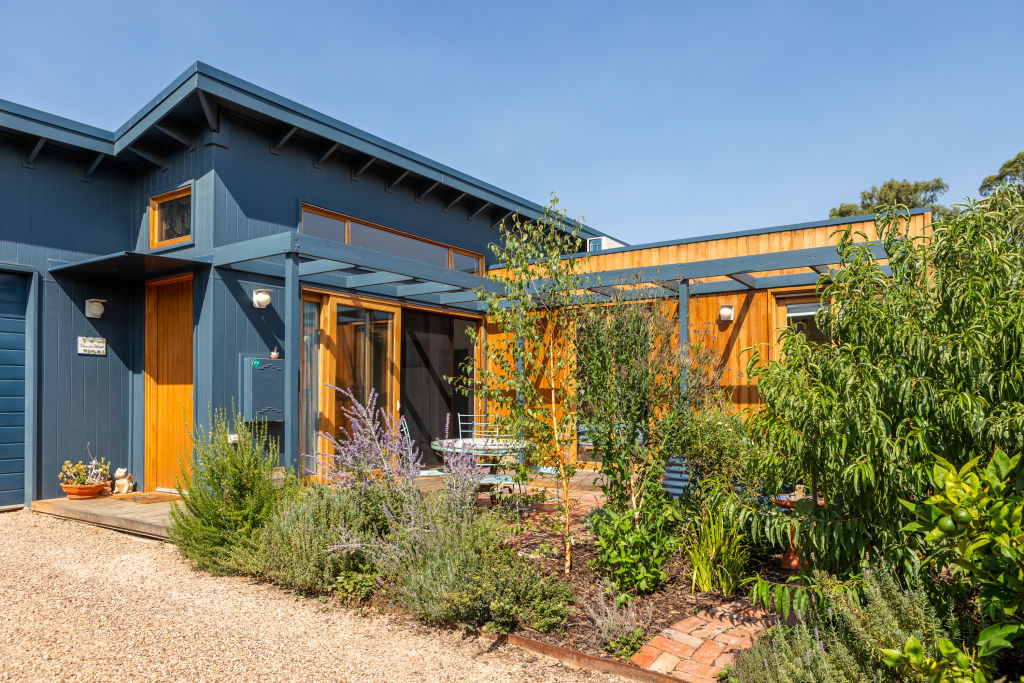
But a year-and-a-half into their search and with house prices soaring, the couple decided to change tack when they came across a subdivided vacant block of land – 10 minutes from their Preston rental.
“We kind of said the stars aligned to push us in this direction and it felt like the right time to build from scratch,” says Barry.
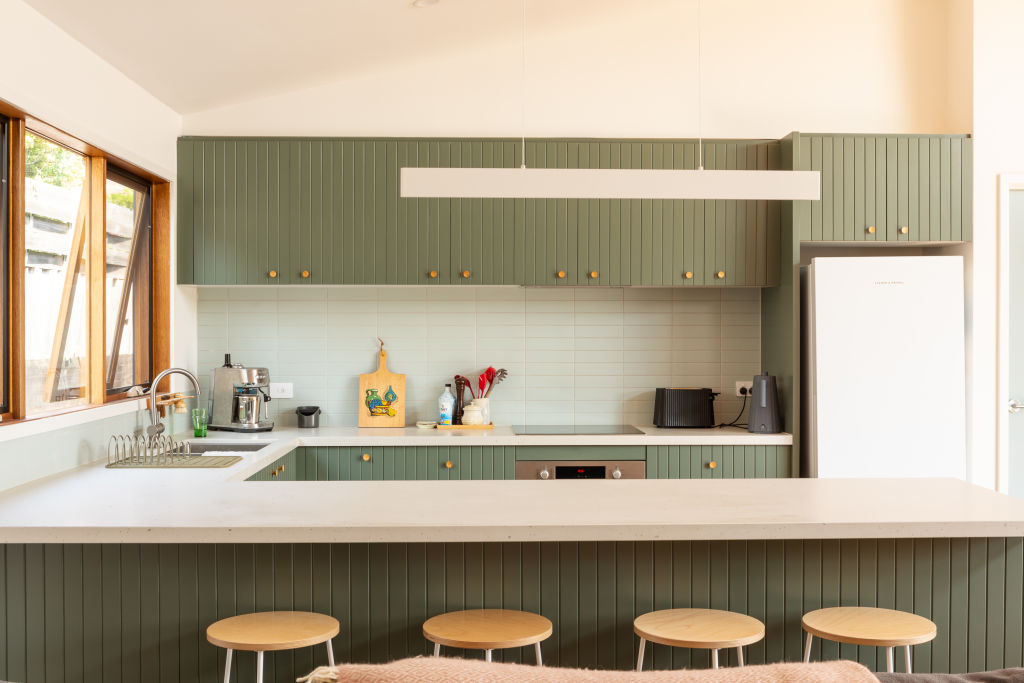
The couple were able to utilise government grants and concessions implemented during the COVID pandemic to help boost their deposit, including the short-lived HomeBuilder Grant (up to $25,000), the First Home Owner Grant (up to $10,000) and a Low Deposit Scheme offered at the time.
“We pretty much went from thinking ‘we will never be able to own a house because we’ve rented for so long and don’t have much savings’, to ‘we can actually do this!’” recalls Barry.
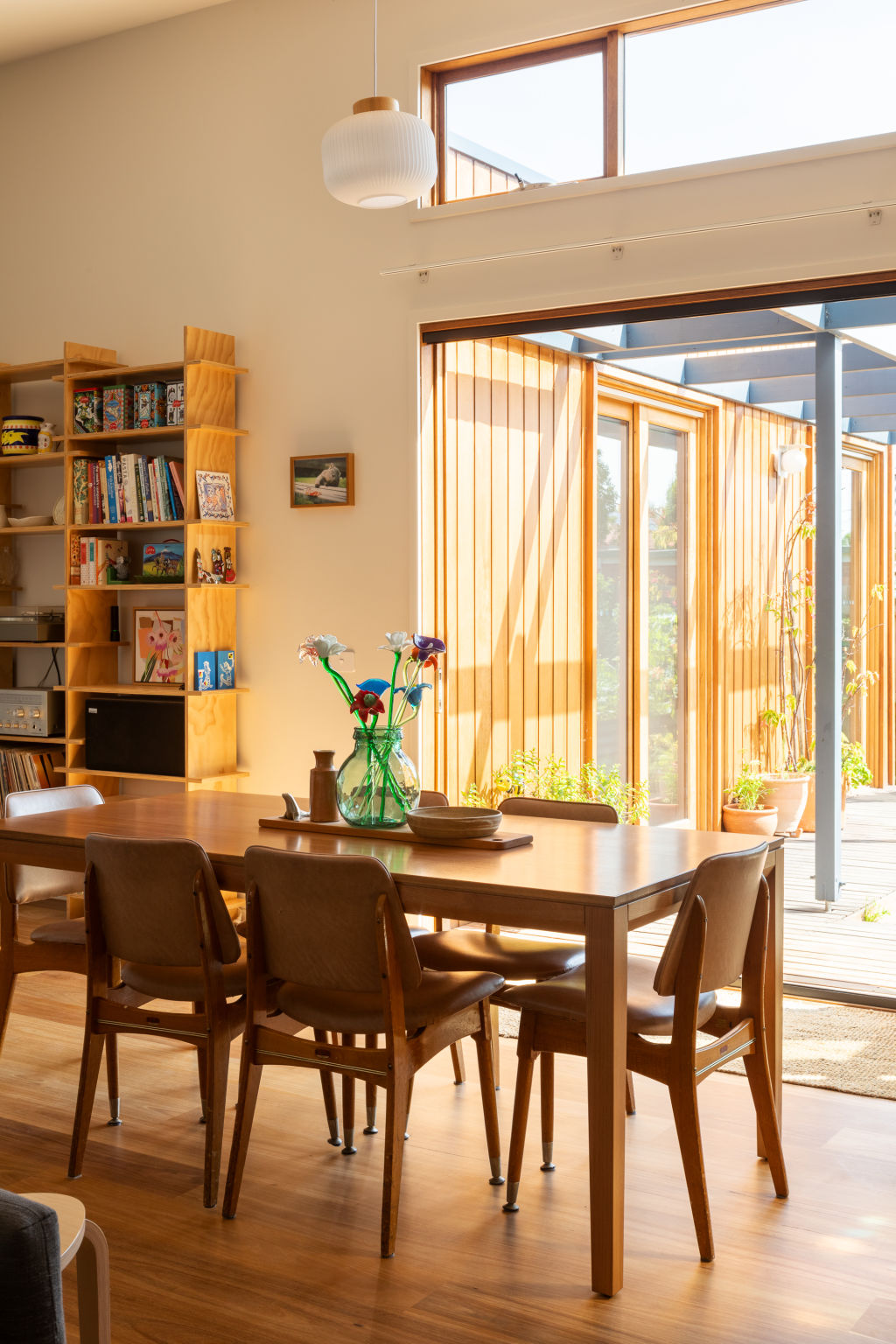
Working as an architectural draftsperson for a residential builder, Burgess put his skills to the test by designing his future home to fit the battle-axe block while his employer would manage the eventual build.
Designing the property’s footprint had its challenges, but it was also an opportunity for Burgess to get creative, eventually positioning the entire home around an all-encompassing “front-yard-backyard-courtyard garden”.
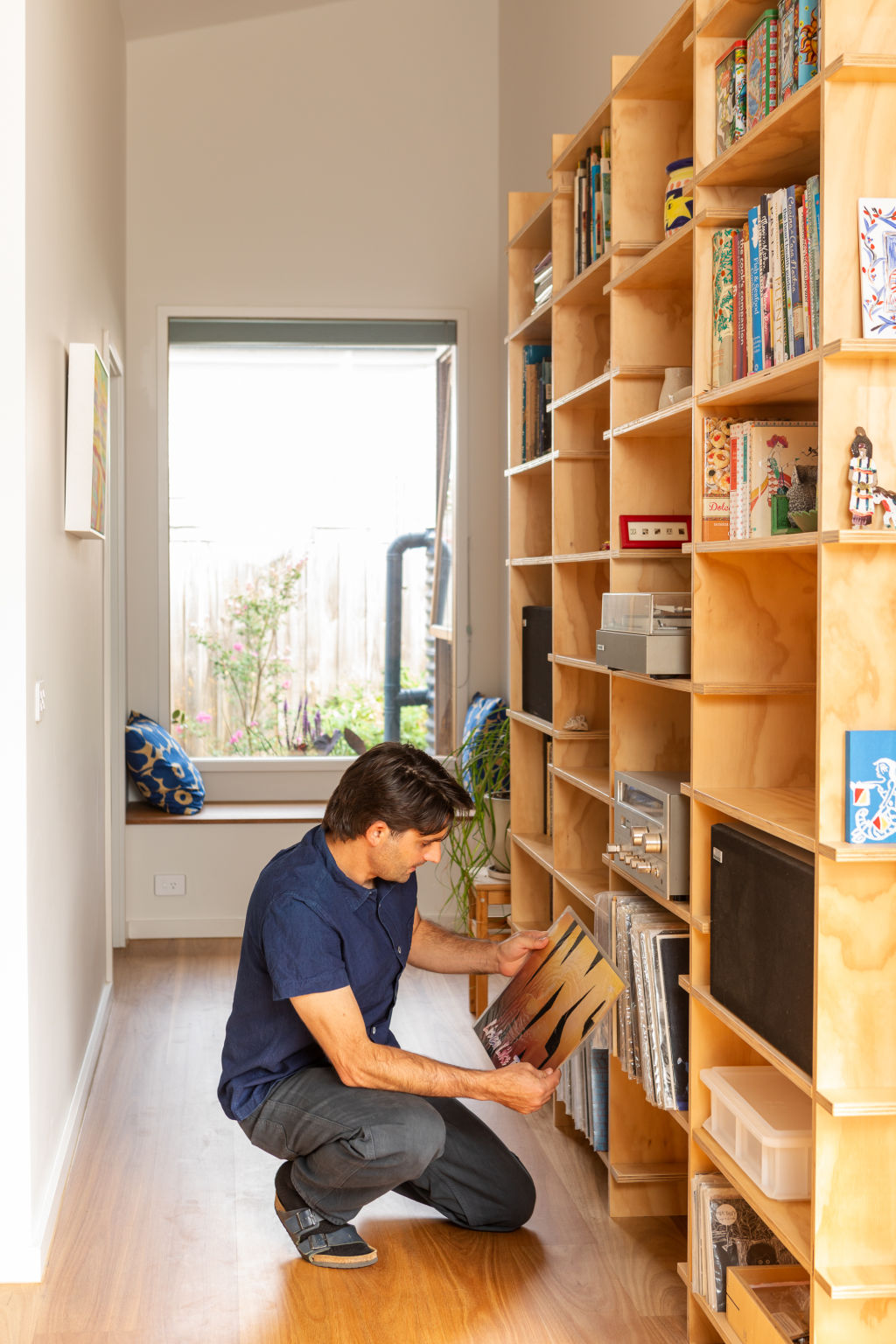
A non-negotiable was a focus on sustainability, building an all-electric powered house with solar panels and a water tank.
It would be two years from purchasing the block to commencing the build in what Barry describes as some “hairy roller-coaster moments” – a combined result of lockdown closures, delayed council permits, and accessing and installing services.
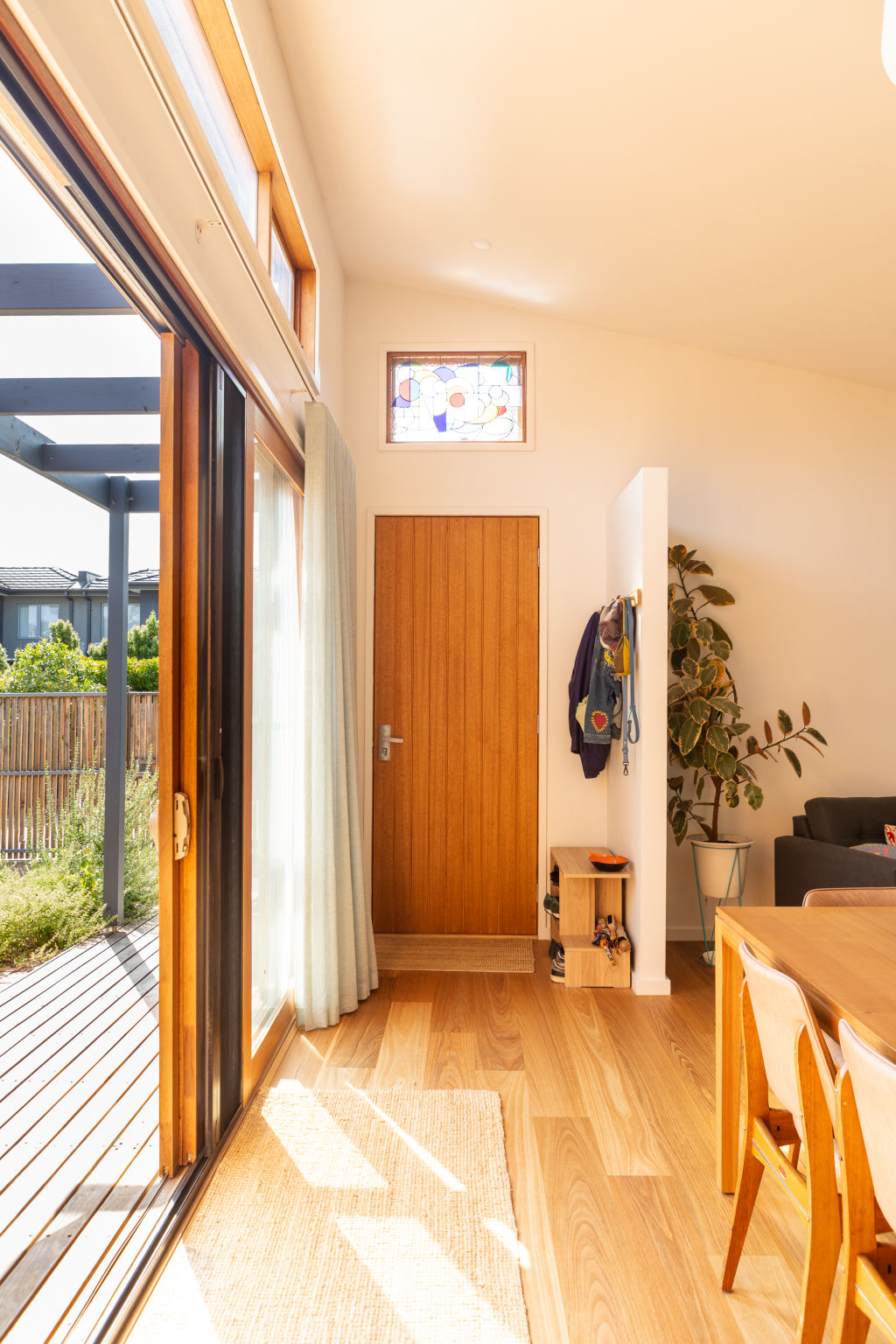
Finally, when the slab was poured in August 2022, it felt like a victory worthy of celebration. From here on, the couple says the building process was relatively smooth.
They instigated the “Thursday Push” towards the end of the build, in which they’d call the site supervisor (who was managing another 19 sites) to remind him of any loose ends that needed addressing.
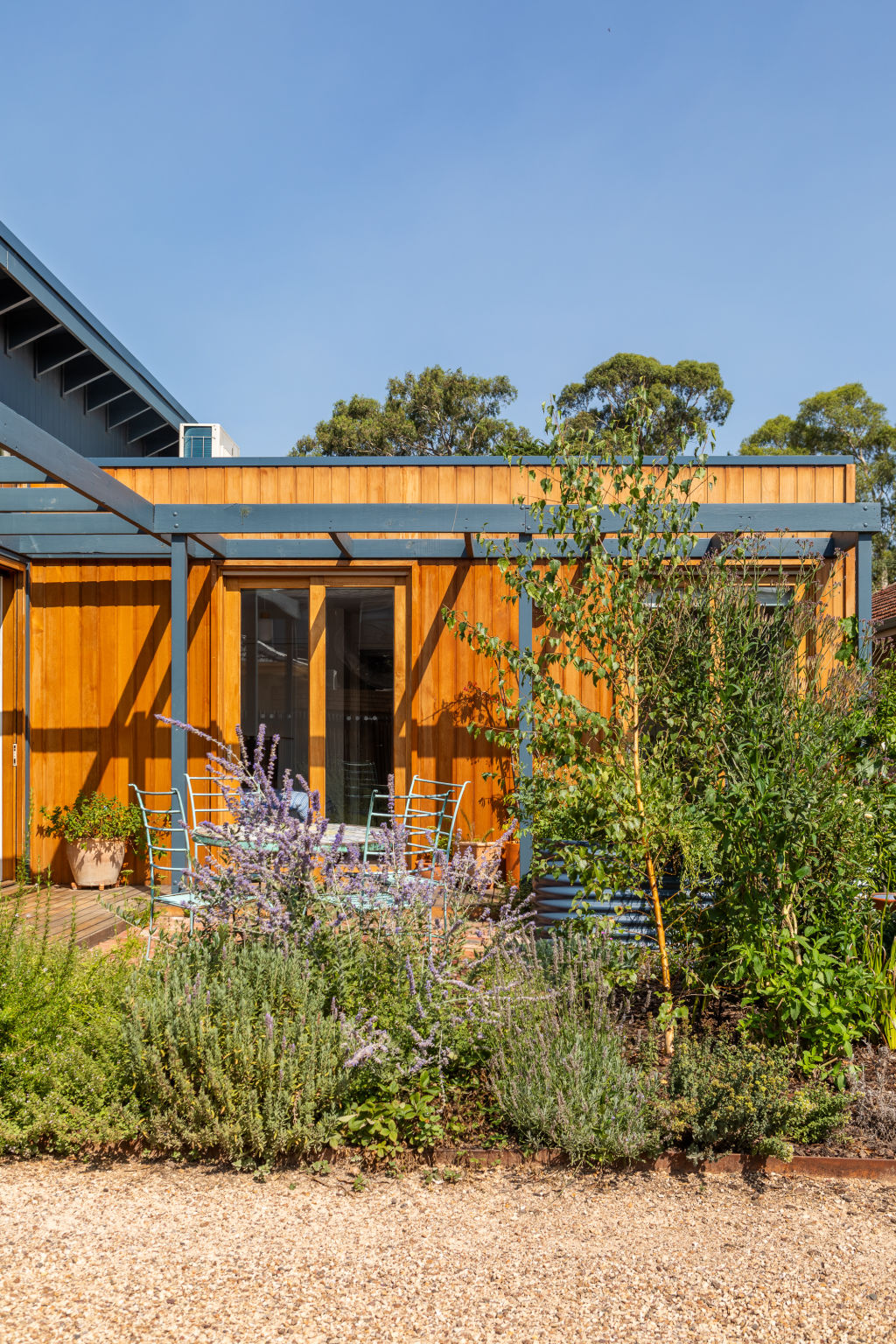
The result? An L-shaped floor plan – including three bedrooms – with an open living-dining area and every room open to the outside, reminiscent of the coastal homes Barry and Burgess grew up in Perth and Queensland’s Sunshine Coast.
“I oriented the house to get as much natural light, and also good shade from the elements, and always try to use what’s around us to create a beautiful space,” says Burgess.
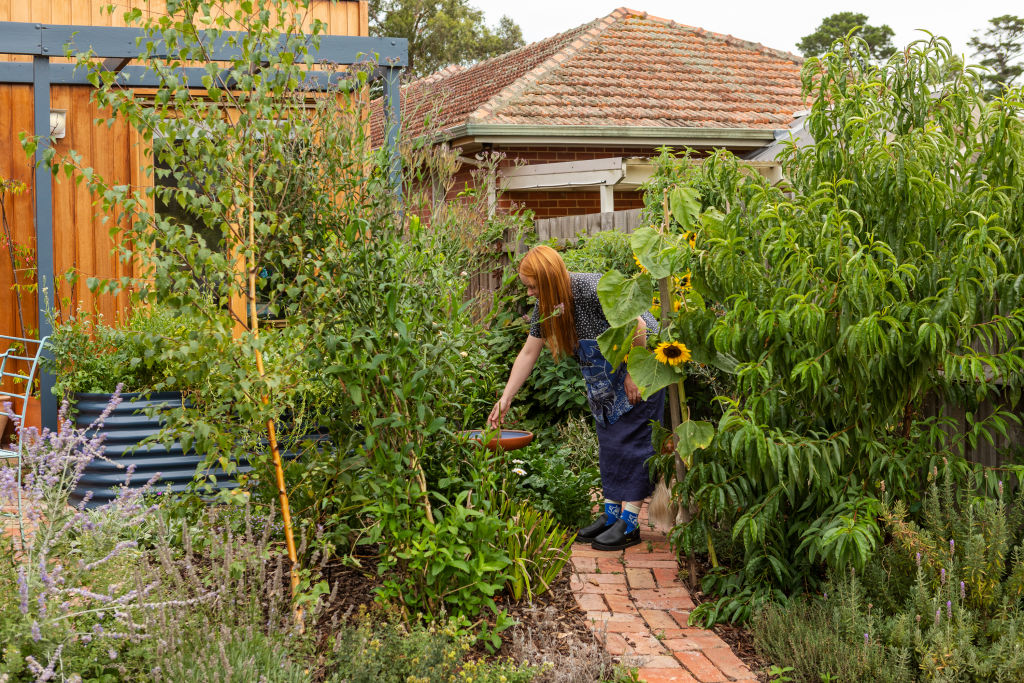
Moving into their home in October 2023, the pair tackled the garden next. To keep within budget, they did most of the gardening, paving, and labour themselves, but they used a professional landscaper to level the garden and bring in soil.
The now well-established garden was mostly grown from seed and includes trees lugged from rental to rental for over a decade – finally out of their pots – and planted straight in the ground.
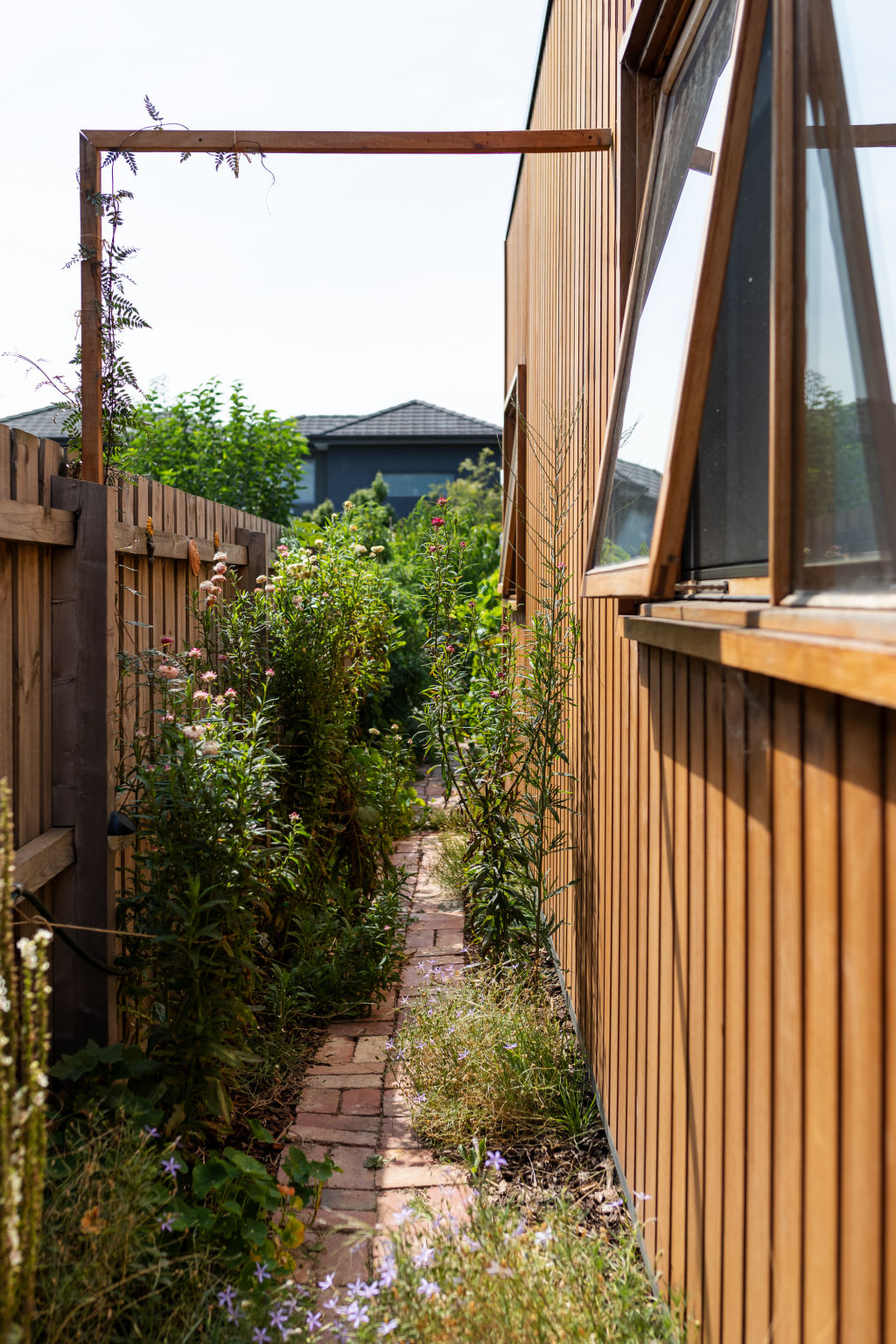
Many of their garden materials are also the result of “training the algorithm” on local marketplaces. They were able to find for free, or source cheaply, raised garden beds, outdoor furniture and bricks.
After living here for just over a year, the couple love their secret garden oasis hidden in the suburbs, and while they have no plans to move for a long time – the lure of a future build lingers somewhere in the distance. “I draw houses everyday, what’s one more?!” Burgess says with a laugh.
We recommend
We thought you might like
States
Capital Cities
Capital Cities - Rentals
Popular Areas
Allhomes
More
